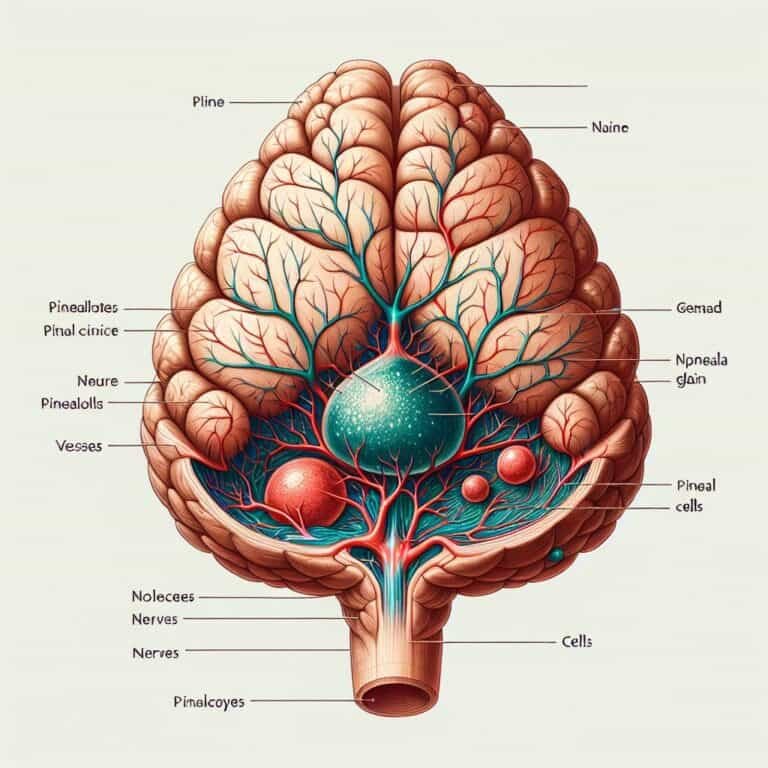How Meditation Can Help Improve Your Mental Health

Wellness Fixation is reader supported, meaning I may earn a small commission if you purchase something through my links at no extra cost to you. Thanks for your support! Learn more
Do you struggle with overwhelming stress and anxiety? Are you looking for a way to improve your mental health that doesn’t involve medication or therapy? Look no further than meditation. This ancient practice has been gaining popularity in recent years as more and more people discover its incredible benefits for the mind, body, and soul. In this blog post, we’ll explore how meditation can help improve your mental health and provide tips on getting started with your own practice. So sit back, take a deep breath, and let’s dive into the world of mindfulness together!
Introduction: What is Meditation?
Meditation has been practiced for centuries as a way to improve mental and physical health. Numerous studies have shown the many benefits of meditation, including improved focus, concentration, and decreased stress and anxiety.
There are many different types of meditation, but the goal of all meditation is to focus and quiet the mind. This can be done by focusing on the breath, a mantra or positive affirmation, or even an object. The key is to find a method that works best for you and stick with it.
The benefits of meditation are vast, but some of the most common include:
- Improved focus and concentration
- Decreased stress and anxiety
- Increased self-awareness
- Improved emotional health
- Enhanced well-being
Benefits of Meditation
Meditation has been shown to be an effective way to improve mental health. Studies have shown that meditation can help reduce stress, anxiety, and depression. Meditation has also been shown to improve focus and attention, and increase self-awareness.
Different Types of Meditation Practices
There are many different types of meditation practices, each with its own unique benefits.
Mindfulness meditation is a type of meditation that helps you focus on the present moment. This can help you become more aware of your thoughts and feelings, and can help you learn to control them.
Transcendental Meditation is a type of meditation that involves repeating a mantra. This helps to focus your mind and can lead to a state of deep relaxation.
Guided meditation is another popular type of meditation. With this type of meditation, you listen to a guided audio recording that leads you through the process step-by-step. This can be especially helpful if you’re new to meditation or have trouble focusing your attention.
There are also many other types of meditation, such as walking meditation, body scan meditation, and qigong. Experiment with different types of meditation to find the ones that work best for you.
How to Start Your Own Meditation Practice
If you’re looking to improve your mental health, one of the best things you can do is start a meditation practice. Meditation has been shown to provide numerous benefits for mental health, including reducing stress, anxiety, and depression.
Starting a meditation practice can seem daunting, but it doesn’t have to be. Here are a few tips to help you get started:
- Find a comfortable place to sit or lie down. You don’t need to be in a special position to meditate, just make sure you’re comfortable so you can focus on your breath and not on your body.
- Close your eyes and focus on your breath. Once you’re comfortable, close your eyes and focus on your breath. Don’t try to control your breathing, just let it happen naturally.
- Let thoughts come and go without judgment. As you focus on your breath, you will inevitably have thoughts come into your mind. That’s okay! Just let them come and go without judgment or attachment. If you find yourself getting lost in thought, simply refocus on your breath.
- Be patient with yourself. Meditation takes practice, so be patient with yourself as you learn how to meditate. Don’t worry if it feels difficult at first – it will get easier with time!
Combining Meditation with Other Mental Health Practices
When it comes to improving your mental health, there are many different approaches that you can take. One approach that is gaining popularity is meditation. Meditation has been shown to be effective in reducing stress, anxiety, and depression. It can also help to improve focus and concentration. While meditation is a powerful tool on its own, it can be even more effective when combined with other mental health practices.
Here are a few ways that you can combine meditation with other mental health practices:
- Use meditation to help you relax before starting other mental health activities. This can help you to be more receptive to the benefits of those activities.
- Incorporate guided meditations into your other mental health practices. For example, if you’re working on visualization exercises, start with a relaxation exercise first to help you get into a deeper state of relaxation.
- Practice mindful meditation throughout the day, especially during difficult or challenging situations. This will help you to stay present and calm in the face of adversity.
- Use meditation as a way to wind down before bedtime. This can help you to sleep better and reduce any residual stress from the day.
- Make time for regular check-ins with yourself during your meditation practice. This will help you to notice any patterns or areas that need improvement in your mental health journey
Challenges to Overcome When Practicing Meditation
There are many challenges that come with practicing meditation, but they can all be overcome with time and patience. The biggest challenge is simply sitting still and clearing your mind of all thoughts. This can be difficult at first, but it gets easier with practice. Other challenges include dealing with distractions, making time for meditation, and staying motivated.
The best way to overcome the challenge of sitting still and clearing your mind is to start with just a few minutes of meditation each day. Once you get used to it, you can gradually increase the amount of time you spend meditating. It’s also important to find a quiet place where you won’t be interrupted or distracted. If you can’t find a quiet place at home, try going to a park or another outdoor space.
Dealing with distractions is another common challenge when meditating. If you find yourself getting distracted by your thoughts or outside noise, simply refocus on your breath and count each inhale and exhale. Over time, you’ll be able to train your mind to focus on one thing and block out all other distractions.
Making time for meditation can be difficult, especially if you have a busy schedule. However, it’s important to make it a priority if you want to see results. Meditation doesn’t have to take hours out of your day – even 10-15 minutes can make a big difference. If you’re having trouble making time in your schedule, try getting up earlier in the morning or meditating right
Conclusion
In conclusion, meditation is an incredibly powerful tool that can help you gain control over your mental health and wellbeing. While there are no guarantees, investing a few moments of your day in regular meditation practice may be one of the best decisions you ever make. Not only will it help reduce stress and improve your overall mood but also give you more clarity about life’s challenges so that you can better cope with them. Meditation truly has the power to transform lives – why not give it a try?
Do you struggle with overwhelming stress and anxiety? Are you looking for a way to improve your mental health that doesn’t involve medication or therapy? Look no further than meditation. This ancient practice has been gaining popularity in recent years as more and more people discover its incredible benefits for the mind, body, and soul. In this blog post, we’ll explore how meditation can help improve your mental health and provide tips on getting started with your own practice. So sit back, take a deep breath, and let’s dive into the world of mindfulness together!
Introduction: What is Meditation?
Meditation has been practiced for centuries as a way to improve mental and physical health. Numerous studies have shown the many benefits of meditation, including improved focus, concentration, and decreased stress and anxiety.
There are many different types of meditation, but the goal of all meditation is to focus and quiet the mind. This can be done by focusing on the breath, a mantra or positive affirmation, or even an object. The key is to find a method that works best for you and stick with it.
The benefits of meditation are vast, but some of the most common include:
– Improved focus and concentration
– Decreased stress and anxiety
– Increased self-awareness
– Improved emotional health
– Enhanced well-being
Benefits of Meditation
Meditation has been shown to be an effective way to improve mental health. Studies have shown that meditation can help reduce stress, anxiety, and depression. Meditation has also been shown to improve focus and attention, and increase self-awareness.
Different Types of Meditation Practices
There are many different types of meditation practices, each with its own unique benefits.
Mindfulness meditation is a type of meditation that helps you focus on the present moment. This can help you become more aware of your thoughts and feelings, and can help you learn to control them.
Transcendental Meditation is a type of meditation that involves repeating a mantra. This helps to focus your mind and can lead to a state of deep relaxation.
Guided meditation is another popular type of meditation. With this type of meditation, you listen to a guided audio recording that leads you through the process step-by-step. This can be especially helpful if you’re new to meditation or have trouble focusing your attention.
There are also many other types of meditation, such as walking meditation, body scan meditation, and qigong. Experiment with different types of meditation to find the ones that work best for you.
How to Start Your Own Meditation Practice
If you’re looking to improve your mental health, one of the best things you can do is start a meditation practice. Meditation has been shown to provide numerous benefits for mental health, including reducing stress, anxiety, and depression.
Starting a meditation practice can seem daunting, but it doesn’t have to be. Here are a few tips to help you get started:
1. Find a comfortable place to sit or lie down. You don’t need to be in a special position to meditate, just make sure you’re comfortable so you can focus on your breath and not on your body.
2. Close your eyes and focus on your breath. Once you’re comfortable, close your eyes and focus on your breath. Don’t try to control your breathing, just let it happen naturally.
3. Let thoughts come and go without judgment. As you focus on your breath, you will inevitably have thoughts come into your mind. That’s okay! Just let them come and go without judgment or attachment. If you find yourself getting lost in thought, simply refocus on your breath.
4. Be patient with yourself. Meditation takes practice, so be patient with yourself as you learn how to meditate. Don’t worry if it feels difficult at first – it will get easier with time!
Combining Meditation with Other Mental Health Practices
When it comes to improving your mental health, there are many different approaches that you can take. One approach that is gaining popularity is meditation. Meditation has been shown to be effective in reducing stress, anxiety, and depression. It can also help to improve focus and concentration. While meditation is a powerful tool on its own, it can be even more effective when combined with other mental health practices.
Here are a few ways that you can combine meditation with other mental health practices:
1. Use meditation to help you relax before starting other mental health activities. This can help you to be more receptive to the benefits of those activities.
2. Incorporate guided meditations into your other mental health practices. For example, if you’re working on visualization exercises, start with a relaxation exercise first to help you get into a deeper state of relaxation.
3. Practice mindful meditation throughout the day, especially during difficult or challenging situations. This will help you to stay present and calm in the face of adversity.
4. Use meditation as a way to wind down before bedtime. This can help you to sleep better and reduce any residual stress from the day.
5. Make time for regular check-ins with yourself during your meditation practice. This will help you to notice any patterns or areas that need improvement in your mental health journey
Challenges to Overcome When Practicing Meditation
There are many challenges that come with practicing meditation, but they can all be overcome with time and patience. The biggest challenge is simply sitting still and clearing your mind of all thoughts. This can be difficult at first, but it gets easier with practice. Other challenges include dealing with distractions, making time for meditation, and staying motivated.
The best way to overcome the challenge of sitting still and clearing your mind is to start with just a few minutes of meditation each day. Once you get used to it, you can gradually increase the amount of time you spend meditating. It’s also important to find a quiet place where you won’t be interrupted or distracted. If you can’t find a quiet place at home, try going to a park or another outdoor space.
Dealing with distractions is another common challenge when meditating. If you find yourself getting distracted by your thoughts or outside noise, simply refocus on your breath and count each inhale and exhale. Over time, you’ll be able to train your mind to focus on one thing and block out all other distractions.
Making time for meditation can be difficult, especially if you have a busy schedule. However, it’s important to make it a priority if you want to see results. Meditation doesn’t have to take hours out of your day – even 10-15 minutes can make a big difference. If you’re having trouble making time in your schedule, try getting up earlier in the morning or meditating right
Conclusion
In conclusion, meditation is an incredibly powerful tool that can help you gain control over your mental health and wellbeing. While there are no guarantees, investing a few moments of your day in regular meditation practice may be one of the best decisions you ever make. Not only will it help reduce stress and improve your overall mood but also give you more clarity about life’s challenges so that you can better cope with them. Meditation truly has the power to transform lives – why not give it a try?





